Tehran delays breach of Iran nuclear deal
As it waits for the deal's remaining signatories to relieve sanctions, Iran narrowly avoids deliberately violating the JCPOA

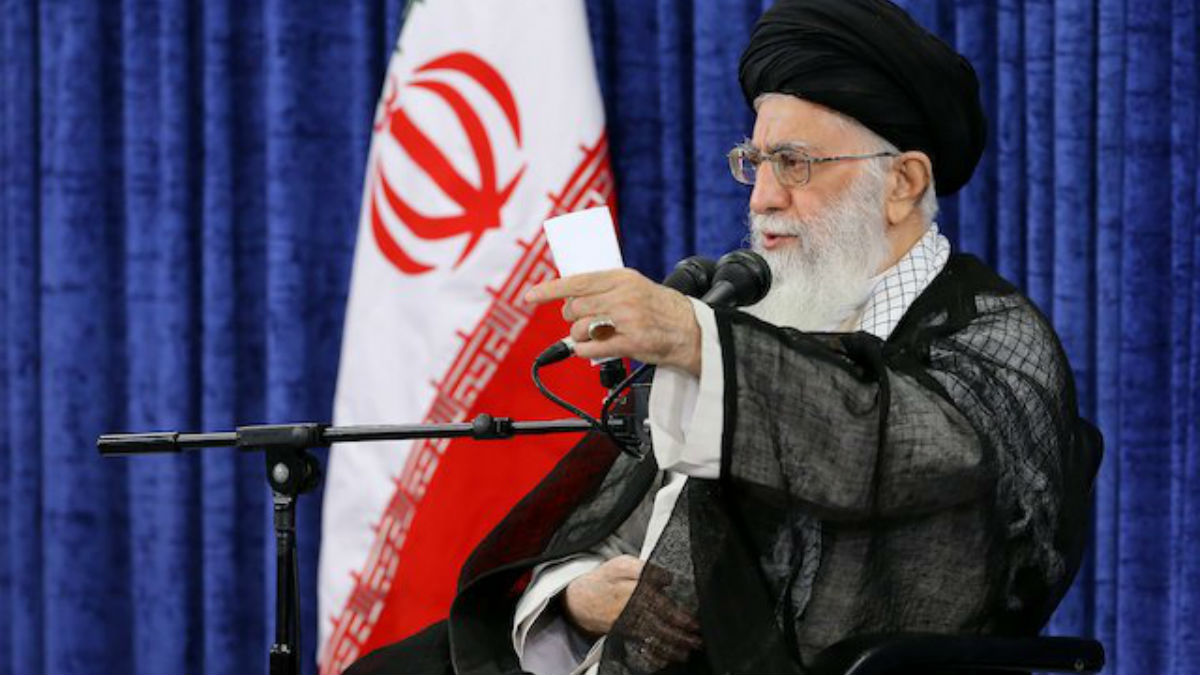
A free daily email with the biggest news stories of the day – and the best features from TheWeek.com
You are now subscribed
Your newsletter sign-up was successful
Yesterday passed without the Iranian government following through on its threat to breach the Joint Comprehensive Plan of Action - the Iran nuclear deal - after the UN’s International Atomic Energy Agency said Tehran had not exceeded the deal’s 300kg cap of low-enriched uranium.
As regional tensions rise and Iran-US relations continue to deteriorate, on Wednesday, Tehran claimed it would up enrichment to deliberately violate the terms of the JCPOA immediately. It seems that following through on this threat may have been temporarily delayed.
Apart from the US, which abandoned the deal last year, the original signatories from 2015 - particularly the Europeans - are desperate to stop the JCPOA crumbling. Diplomatic pressure has been exerted before a pivotal meeting between representatives of Iran, Britain, France, Germany, Russia, China, and the European Union scheduled in Vienna for today.
The Week
Escape your echo chamber. Get the facts behind the news, plus analysis from multiple perspectives.

Sign up for The Week's Free Newsletters
From our morning news briefing to a weekly Good News Newsletter, get the best of The Week delivered directly to your inbox.
From our morning news briefing to a weekly Good News Newsletter, get the best of The Week delivered directly to your inbox.
Significantly, the Islamic Republic is eager to find out the details of the EU’s proposed plan to circumvent US sanctions, which are crippling the country’s economy and causing unemployment rates to soar.
As the Daily Telegraph reports: “European nations are expected to use the meeting to announce a new credit instrument designed to facilitate trade with Iran. The mechanism, called Instex, is meant to allow European companies to sell essential goods to Iran without falling foul of US financial sanctions. Britain, France, and Germany are expected to put up a small amount of money to kickstart it.”
“We welcome their [the European’s] positions against the withdrawal of the US,” Iran’s deputy foreign minister, Abbas Araghchi, told Iranian state television in Vienna. “But these political positions should certainly be translated into operational steps.”
The Europeans hope the operational steps they are taking will be enough to convince Iran to keep the deal alive. “Iran has said it will breach the deal unless it gets at least some of the economic benefits it was promised in return for accepting tough limits on its nuclear program,” the New York Times says. “The Europeans are hoping to announce by Friday a multimillion-euro line of credit to get the barter-trade system functioning.”
A free daily email with the biggest news stories of the day – and the best features from TheWeek.com
However, according to The Guardian, attempts to hold the deal together are “probably doomed”. The New York Times follows suit: “Most analysts agree that it will not bring Iran the benefits it seeks, but the Europeans regard it as an important gesture of good faith in the agreement and as a riposte to a Trump administration that they say is using American financial power to harm European interests and trade.”
The US administration remains hawkish on Iran and the 2015’s nuclear deal. “If they get the message that they’ve succeeded in scaring JCPOA partners into trying to pay for a return to compliance, then that will create a market for more misbehavior,” said the US’s assistant secretary of state for nonproliferation, Christopher Ford.
“It’s extortion,” said Brian Hook, US special representative for Iran, lamenting that the “the vehicle doesn’t exist” for the US to impose sanctions on the European attempts to establish a trade mechanism with Iran.
This coming weekend holds further hopes for keeping the deal alive, as the issue will be of prime concern at the G20 summit in Japan.
According to the Wall Street Journal, European nations have “warned if Iran breaches its commitments under the nuclear deal, there will be consequences that could eventually kill the deal and lead to renewed European sanctions on Tehran. Still, no sharp response is immediately expected from Europe if Iran breaches the enriched uranium cap. If Iran does breach the 300-kilogram enriched uranium limit, it would still be far off from having the ability to produce enough nuclear fuel for an atomic bomb.”
William Gritten is a London-born, New York-based strategist and writer focusing on politics and international affairs.
-
 The ‘ravenous’ demand for Cornish minerals
The ‘ravenous’ demand for Cornish mineralsUnder the Radar Growing need for critical minerals to power tech has intensified ‘appetite’ for lithium, which could be a ‘huge boon’ for local economy
-
 Why are election experts taking Trump’s midterm threats seriously?
Why are election experts taking Trump’s midterm threats seriously?IN THE SPOTLIGHT As the president muses about polling place deployments and a centralized electoral system aimed at one-party control, lawmakers are taking this administration at its word
-
 ‘Restaurateurs have become millionaires’
‘Restaurateurs have become millionaires’Instant Opinion Opinion, comment and editorials of the day
-
 Witkoff and Kushner tackle Ukraine, Iran in Geneva
Witkoff and Kushner tackle Ukraine, Iran in GenevaSpeed Read Steve Witkoff and Jared Kushner held negotiations aimed at securing a nuclear deal with Iran and an end to Russia’s war in Ukraine
-
 ‘The mark’s significance is psychological, if that’
‘The mark’s significance is psychological, if that’Instant Opinion Opinion, comment and editorials of the day
-
 ‘My donation felt like a rejection of the day’s politics’
‘My donation felt like a rejection of the day’s politics’Instant Opinion Opinion, comment and editorials of the day
-
 How Iran protest death tolls have been politicised
How Iran protest death tolls have been politicisedIn the Spotlight Regime blames killing of ‘several thousand’ people on foreign actors and uses videos of bodies as ‘psychological warfare’ to scare protesters
-
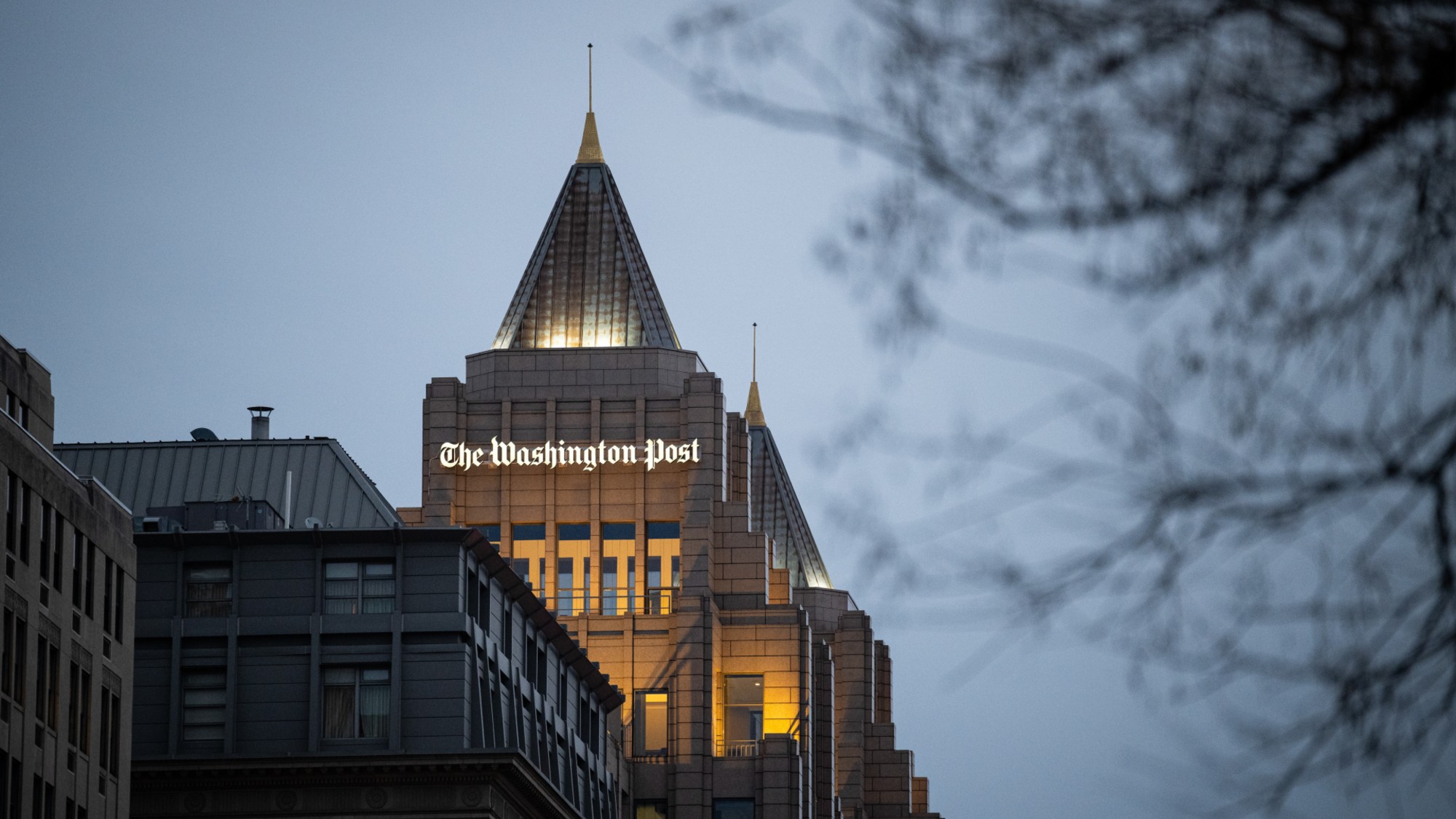 ‘It may portend something more ominous’
‘It may portend something more ominous’Instant Opinion Opinion, comment and editorials of the day
-
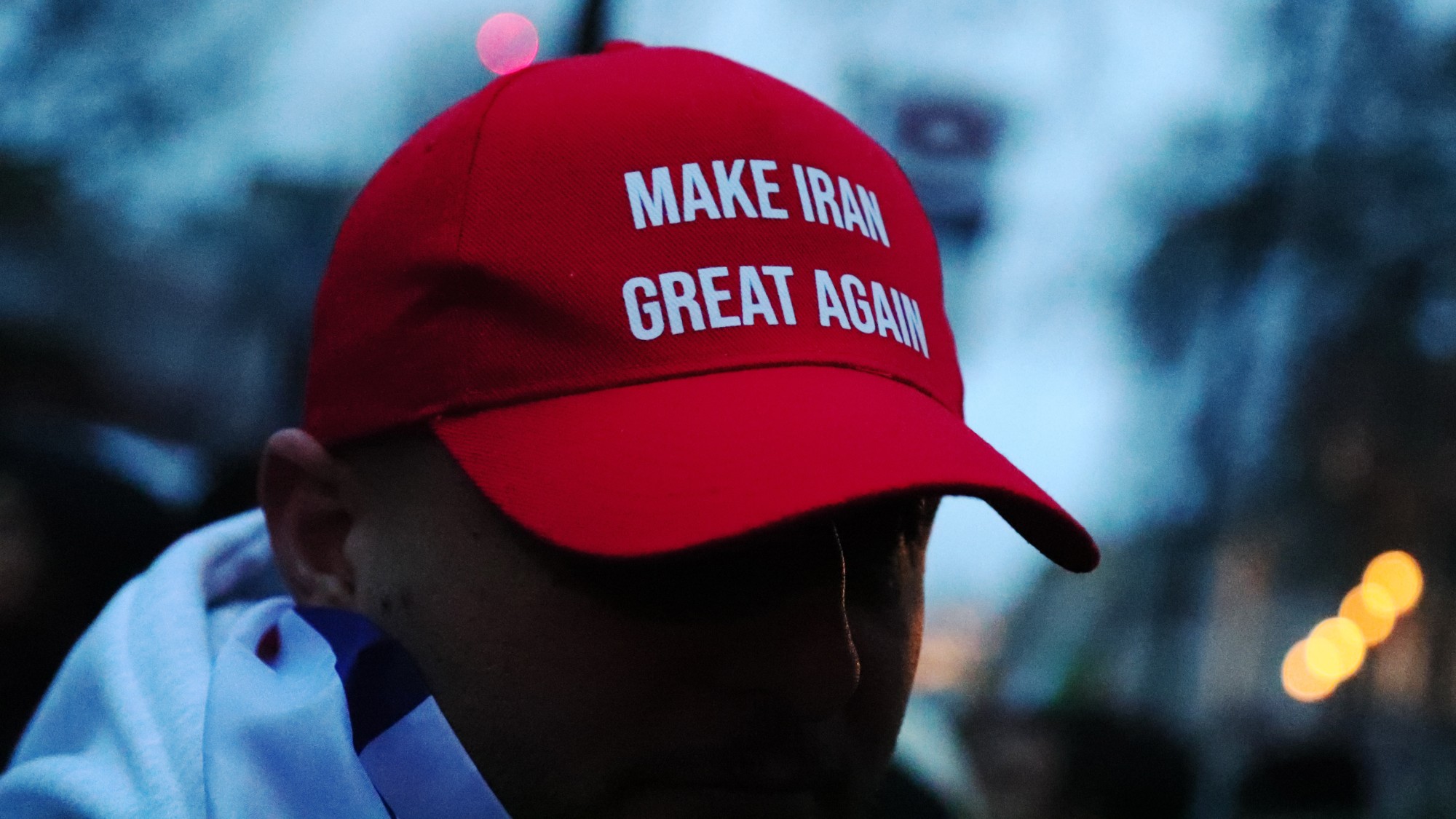 What are Donald Trump’s options in Iran?
What are Donald Trump’s options in Iran?Today's Big Question Military strikes? Regime overthrow? Cyberattacks? Sanctions? How can the US help Iranian protesters?
-
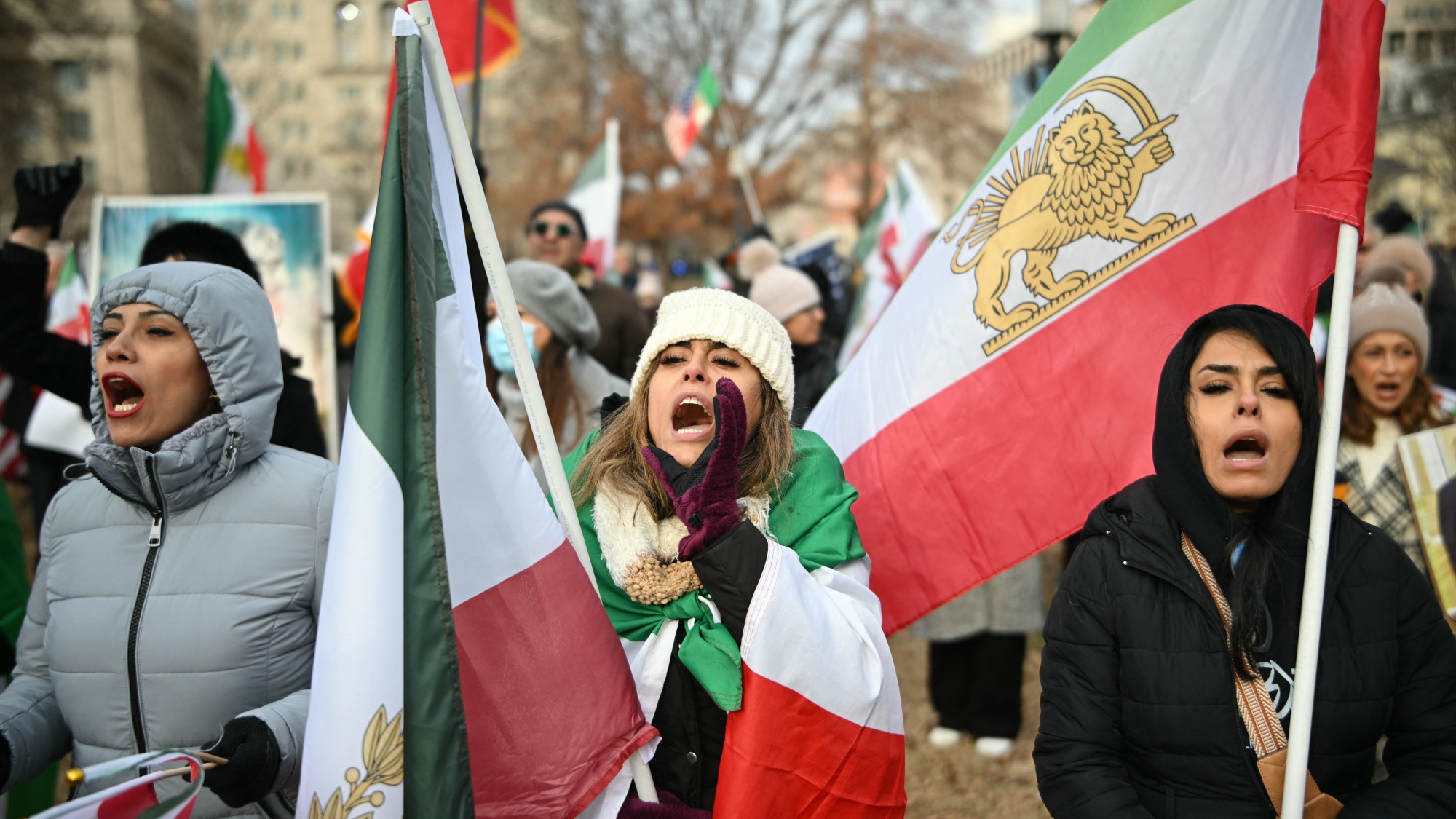 Unrest in Iran: how the latest protests spread like wildfire
Unrest in Iran: how the latest protests spread like wildfireIn the Spotlight Deep-rooted discontent at the country’s ‘entire regime’ and economic concerns have sparked widespread protest far beyond Tehran
-
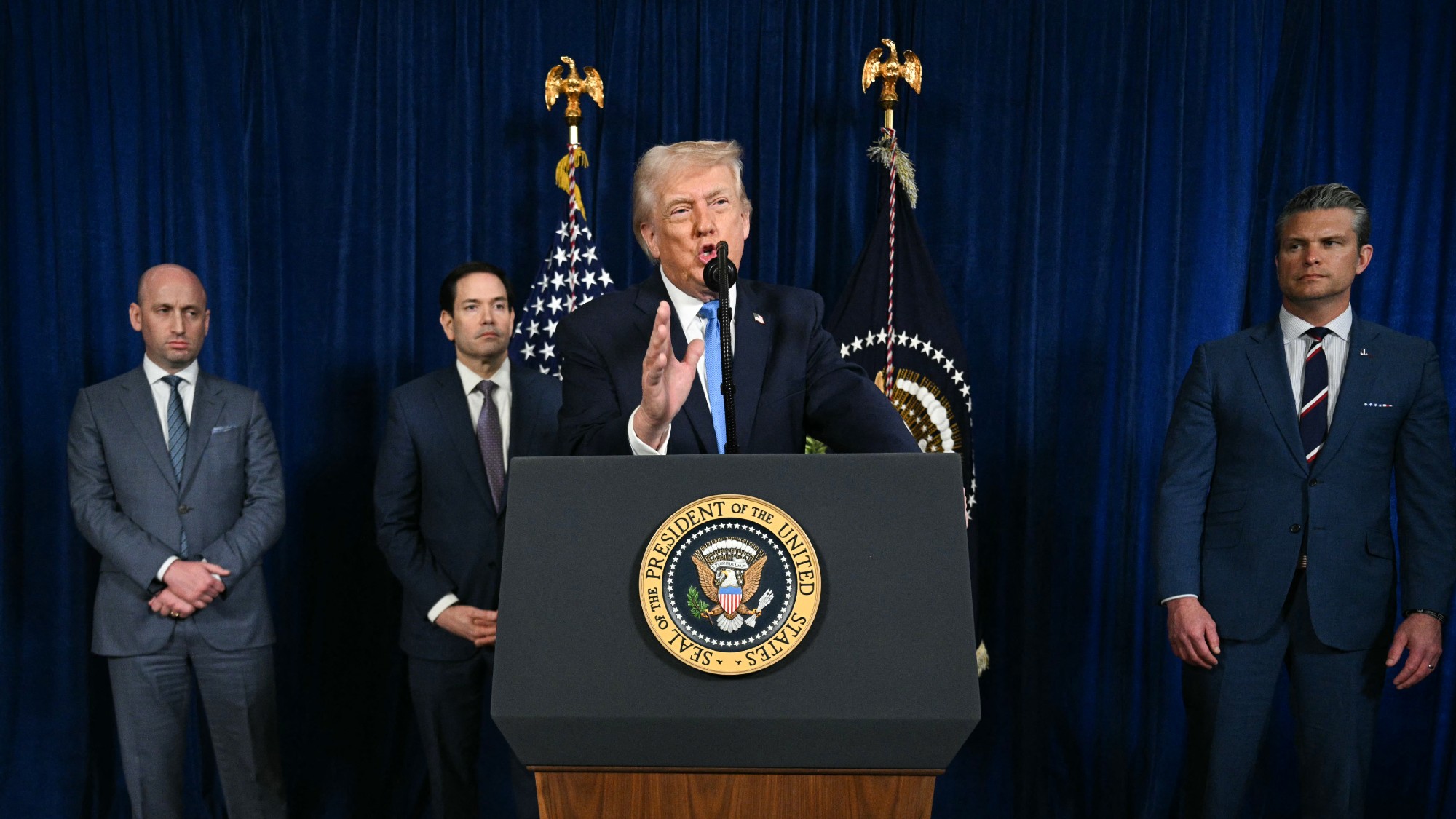 What is the Donroe Doctrine?
What is the Donroe Doctrine?The Explainer Donald Trump has taken a 19th century US foreign policy and turbocharged it
